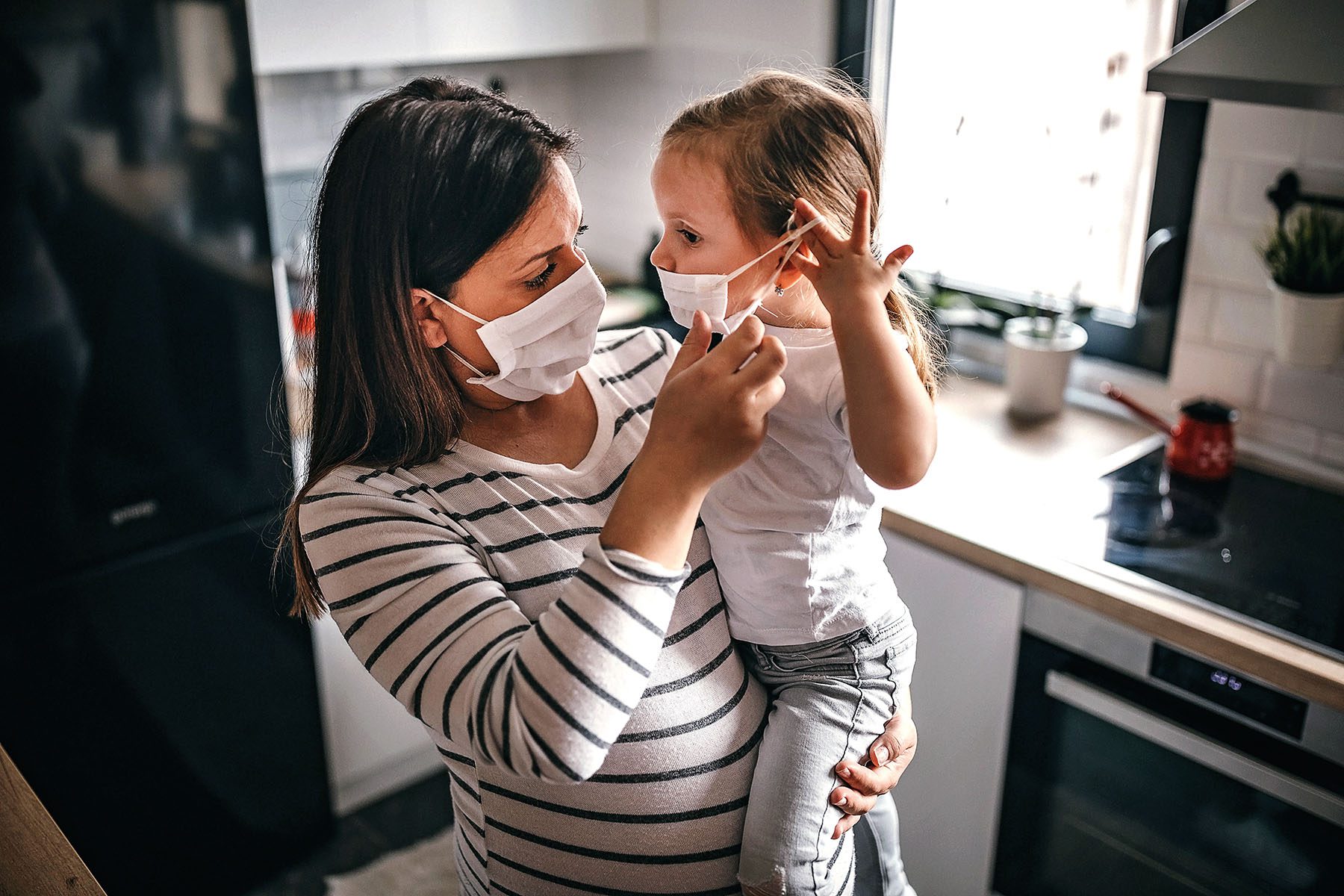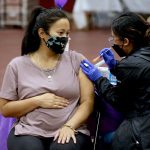Researchers say pregnant people’s bodies are slower to mount a full antibody response after their first dose of an mRNA COVID vaccine, and that it is only after the second dose that their immune response is similar to that of a non-pregnant person.
Dr. Katherine Gray, one of the lead researchers on the new paper published this month, told The 19th that the study only reinforces the importance of pregnant people getting fully vaccinated against COVID-19. “This just adds to the existing data that already suggests that a pregnant individual should be vaccinated and that they do respond very well to the vaccine,” she said.
In her own practice as an OB/GYN, Gray said she’s heard plenty of patients say, “I got the first dose and then I got pregnant — so I won’t get the second.” But this research makes clear, she said, that “you definitely need to get the second dose of the first series.”
Presently, only one-third of all pregnant individuals in the United States have received their full first set of COVID vaccinations. Gray hopes her research can help contribute to a conversation around how to change that — and how to prevent similar vaccine hesitancy in the future.
The Centers for Disease Control and Prevention (CDC) recently recommended that pregnant individuals receive a booster dose of an mRNA vaccine if they are more than six months out from their second dose. Gray said that she believes that her research helps solidify the case for boosters. Pregnant people are more vulnerable to both breakthrough infection and severe infection, and through late summer and early fall news outlets reported unvaccinated mothers had higher rates of hospitalization, death and miscarriage and stillbirth.
Dr. Denise Jamieson, chair of the department of obstetrics and gynecology at Emory University School of Medicine, said that the communication surrounding the safety of the COVID vaccine has contributed to hesitancy among pregnant people.
“Where we are now is that we have very solid data that a pregnant person is more severely impacted by COVID, and that contracting COVID during pregnancy makes you more likely to have a preterm birth,” Jamieson said. “And though rare, it’s also possible to transmit COVID to the fetus too.”
While pregnant individuals were left out of the initial clinical trials of the vaccines, now over 60,000 pregnant people have tracked their case history through the CDC’s VSafe program, and over 5,000 pregnant people and their babies have enrolled in a birth registry for parents and babies who were vaccinated during pregnancy.
“The landscape has changed. We now have good information on both the severity of COVID during pregnancy and the safety of vaccination during pregnancy,” Jamieson said, adding that she hopes this latest research will encourage more people to get fully vaccinated — including a third, booster dose.
A lot of the initial hesitation, Gray said, was related to timing and the way in which pregnant and lactating individuals were left out of the initial COVID vaccine clinical trials. When the vaccine first came out almost one year ago, she said, there was no data on its safety or efficacy among that population. Next came guidance suggesting that pregnant people counsel individually with their obstetrical provider to determine if vaccination was a safe choice from then. It wasn’t until July 2021 that the CDC and the American College of Obstetricians and Gynecologists (ACOG) finally officially recommended vaccination for pregnant and lactating people.
“That was only three months ago,” Gray said. “It’s very difficult for people to keep up with the fast pace of how these recommendations have changed and how the data coming out has changed at an incredibly fast rate. We haven’t done anyone any favors and there is so much more that could be done to promote directed and streamlined messaging about vaccination and pregnancy.”
She added that with the cases that the nation saw with the Delta variant, it’s important to understand the efficacy of the vaccines for pregnant individuals.
“Even though there are subtle differences in delays in maturation of antibody response, [the mRNA COVID vaccines] are very protective and we need to emphasize the importance of receiving vaccination.”
Jamieson added that the need remained as urgent as ever for pregnant people.
“If you have delayed vaccination, don’t let this be a disincentive to get vaccinated now. Even one dose provides some degree of protection. This is not an excuse to say, ‘Oh the vaccine doesn’t work in pregnancy and I’m not getting vaccinated.’ This is not what this research says at all. There are subtle differences in the quality of immune response after the first dose. But overall, the vaccines are very effective.”







